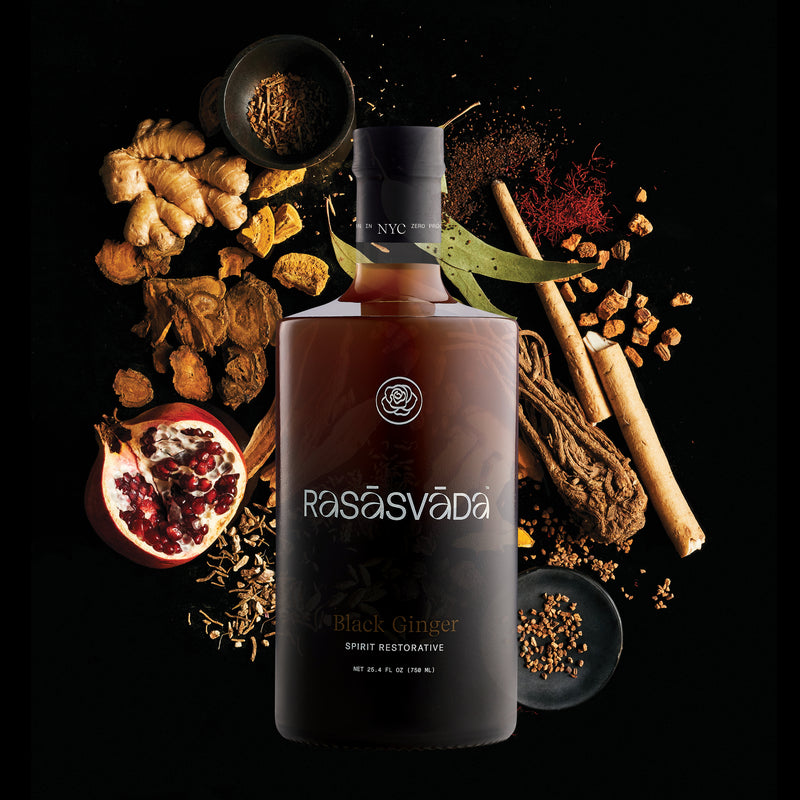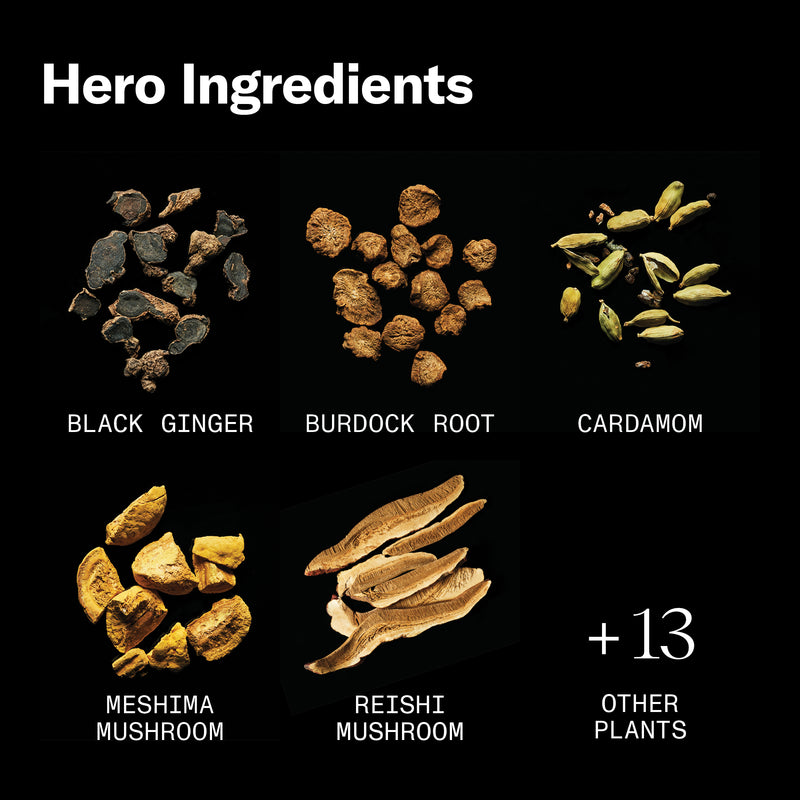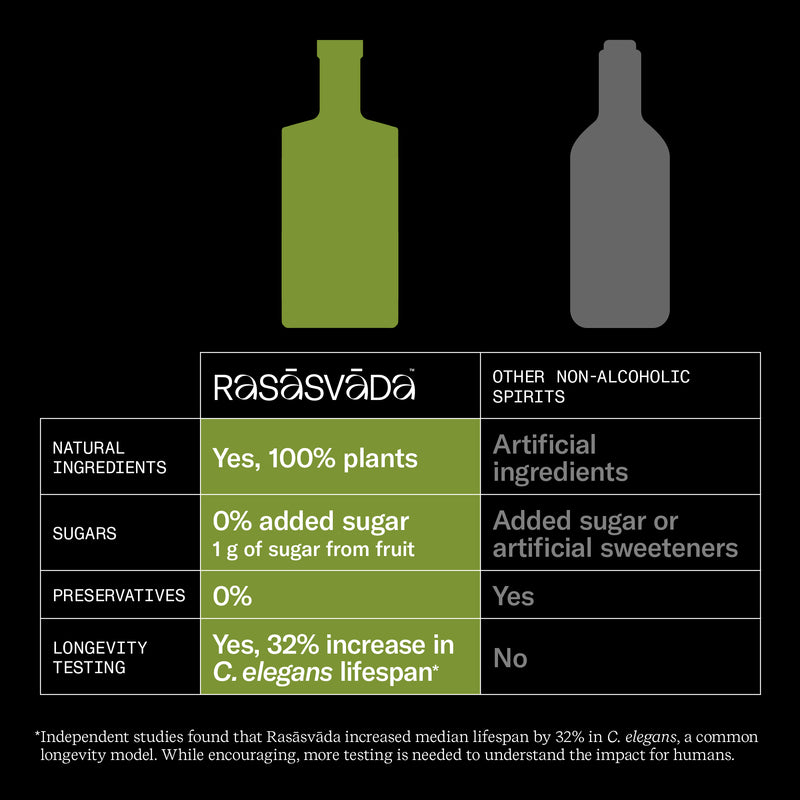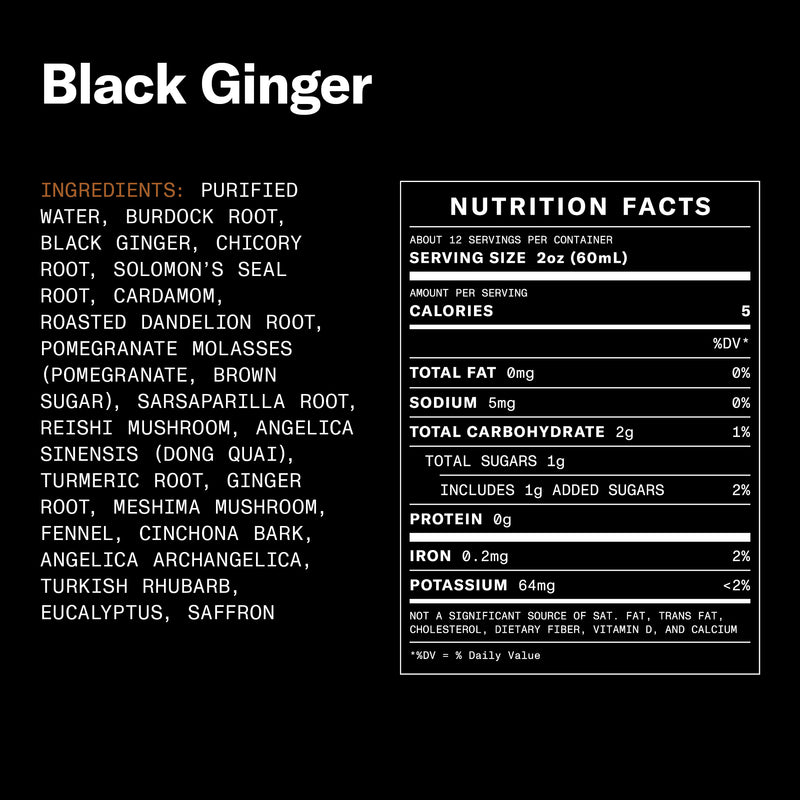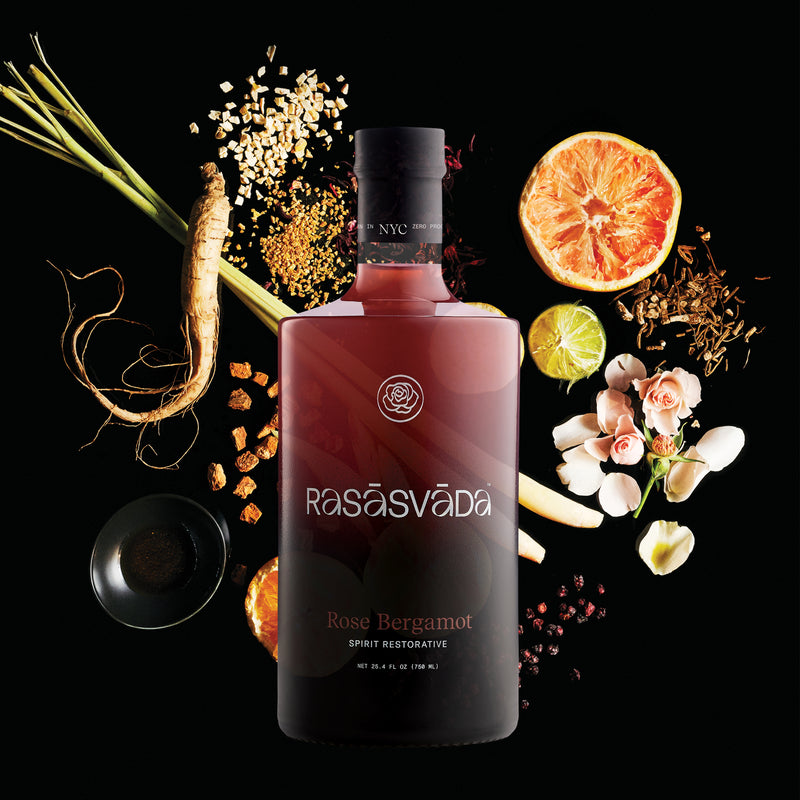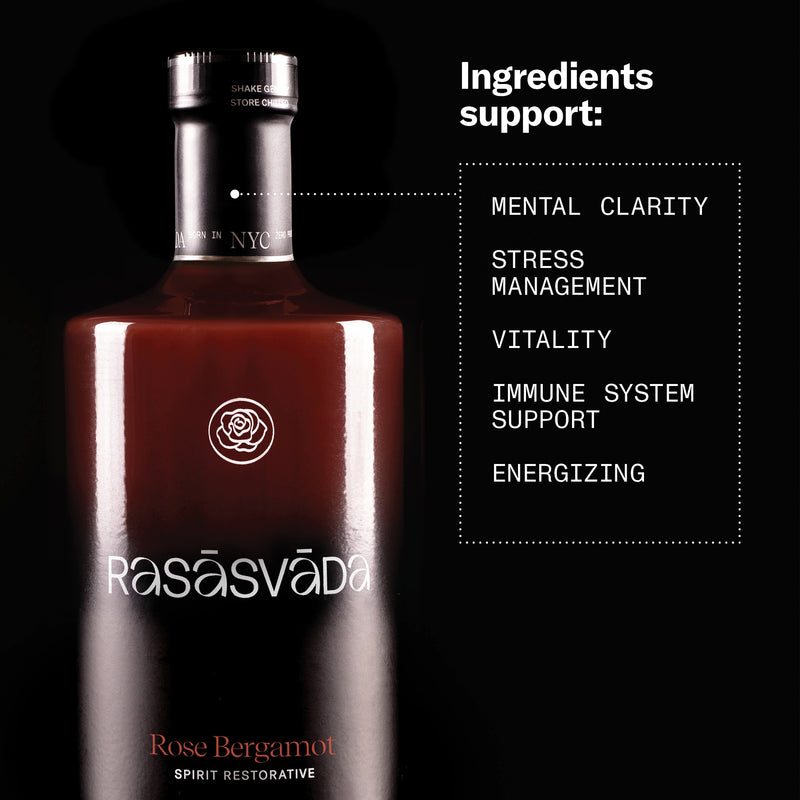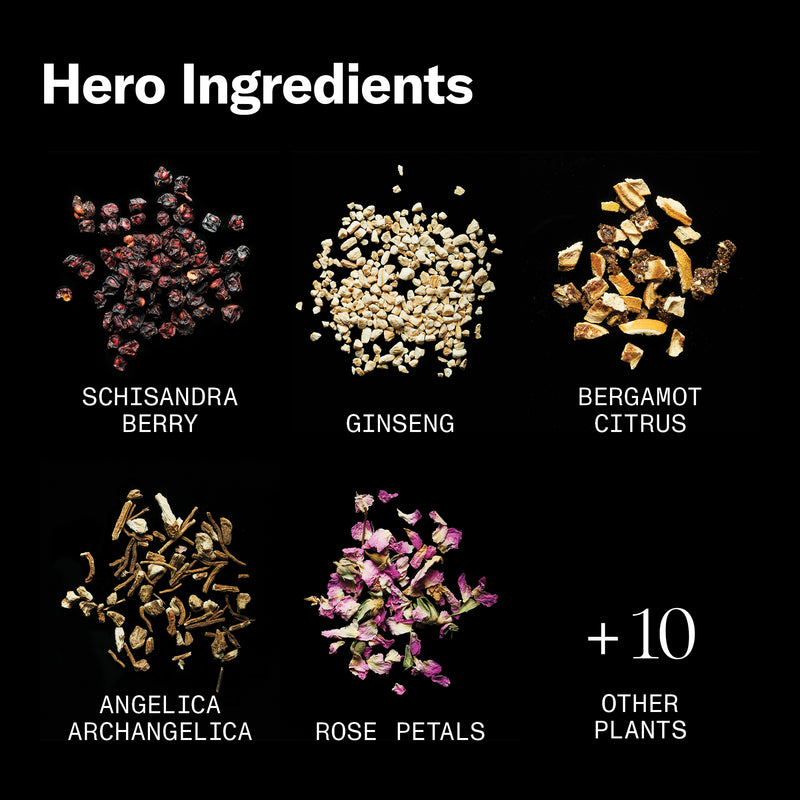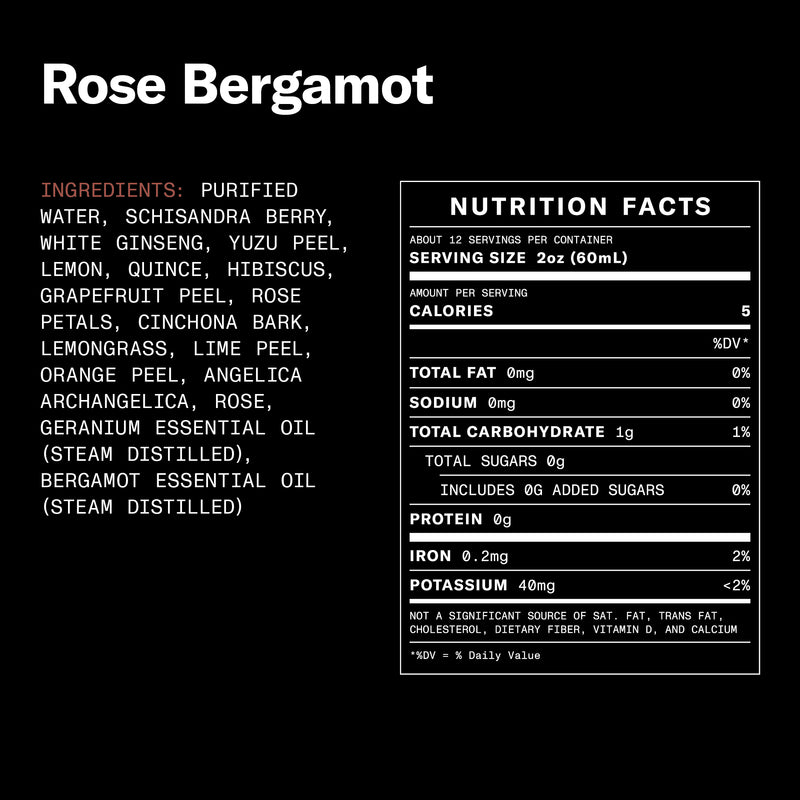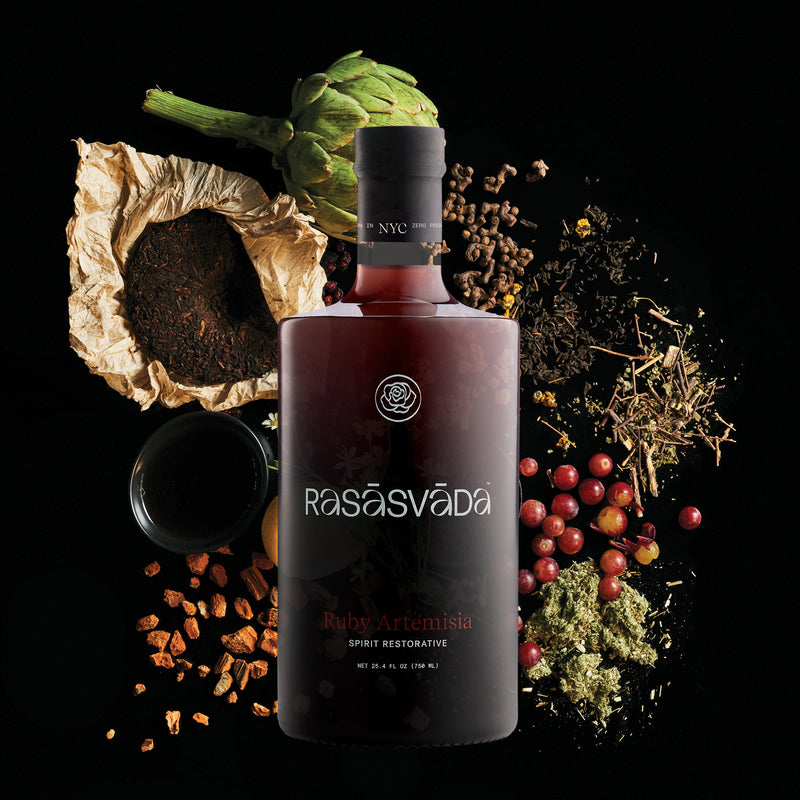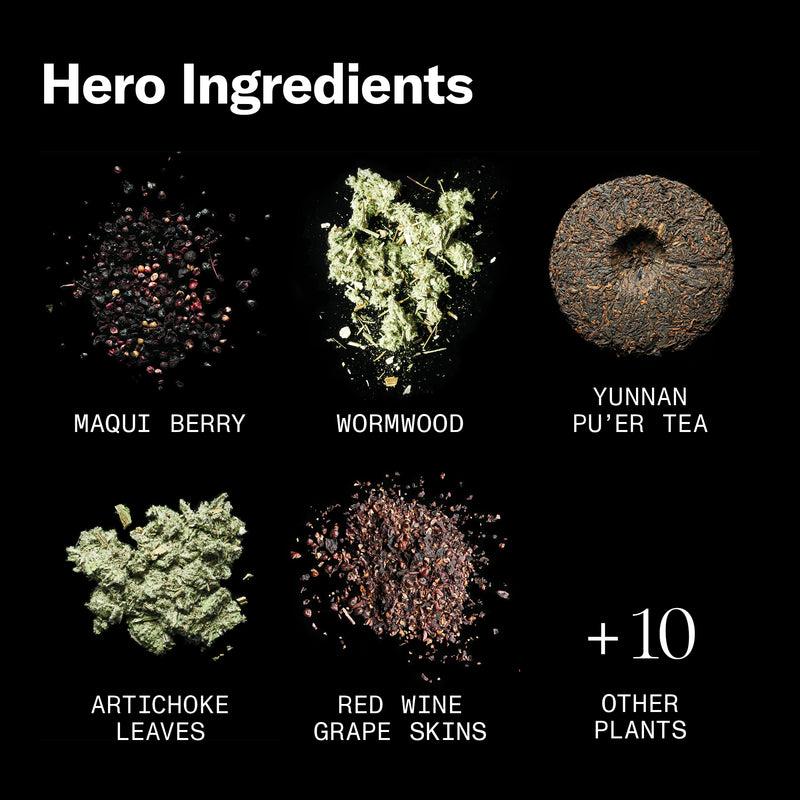The Power of Adaptogens: Nature’s Answer to Modern Stress
In today’s fast-paced world, stress has become an unavoidable part of life. From looming deadlines to everyday demands, our bodies and minds are constantly navigating stressors. But it’s not just the pressures of modern living—our systems also contend with hidden stressors like toxins in our food, water, and the environment, from pesticide residues to air pollution. What if nature provided a solution to help us stay balanced and resilient amidst this onslaught? Enter adaptogens—powerful botanicals that support the body’s ability to adapt to stress and maintain overall well-being.
What Are Adaptogens?

Adaptogens are remarkable natural substances that help the body adapt to stress, support normal metabolic function, and help restore systemic equilibrium. They are found in certain herbs and mushrooms and help the body resist stressors—whether physical, biological, emotional, or environmental. They work by interacting with the hypothalamic-pituitary-adrenal (HPA) axis and the sympathetic nervous system, regulating the body’s response to stress. Unlike stimulants, which provide a short-term lift, adaptogens promote long-term balance by enhancing endurance, mental clarity, and overall resilience (Winston & Maimes, Adaptogens: Herbs for Strength, Stamina, and Stress Relief).
The History of Adaptogens
The modern scientific exploration of adaptogens began in the late 1940s in the former Soviet Union. At that time, the Soviet Academy of Sciences was tasked with developing a performance-enhancing substance that met strict health standards and could be safely used by elite professionals—including military personnel, athletes, political officers, and chess champions. This effort was officially initiated in 1943, when the Council of People’s Commissars issued a directive to identify “tonic substances” that could support the physical and mental endurance of soldiers and laborers.
It was Soviet pharmacologist and medical doctor Nikolai V. Lazarev who first introduced the term adaptogen, derived from the Latin adaptare, meaning “to adjust” or “to fit.” He used it to describe a substance that could enhance the body’s general resistance to a variety of physical, chemical, or biological stressors, thereby improving an organism's ability to adapt to challenging conditions.
Lazarev’s colleague, Dr. Israel I. Brekhman, later shifted the research emphasis from synthetic compounds to plant-based remedies. Together, they launched an ambitious research program focused on the effects and benefits of botanicals with pharmacologically active properties.
Over time, their team expanded to include more than 1,200 scientists, biologists, and physicians. Their work led to over 3,000 experimental studies and clinical trials. The researchers focused on plants known for surviving harsh climates—particularly those that had endured the Ice Age—believing that the same adaptive qualities that allowed these plants to thrive might also help the human body cope with modern stress.
After screening more than 4,000 plant species, researchers ultimately identified 12 that met the criteria to be classified as true adaptogens.
By the 1960s, this field had become a respected branch of biomedical research in the USSR. By 1984, more than 1,500 pharmacological and clinical studies on adaptogenic herbs had been published by Russian scientists (Winston & Maimes, Adaptogens: Herbs for Strength, Stamina, and Stress Relief).
The Key Benefits of Adaptogens
Stress Support
Adaptogens play a vital role in helping the body respond to a wide range of stressors—whether physical, environmental, or emotional. They support the body's neuroendocrine and immune systems, which are closely linked in managing the stress response. By doing so, adaptogens help maintain balance and reduce the negative impacts of prolonged stress. Rather than blocking stress entirely, they allow the body to adapt more effectively, strengthening its natural defense mechanisms and lessening the harmful effects that chronic stress can cause. This capacity to boost overall resilience is central to their health-supporting properties (Winston & Maimes, Adaptogens: Herbs for Strength, Stamina, and Stress Relief).
Well-being
In addition to helping with stress, adaptogens also contribute to overall well-being. Herbs such as Asian ginseng, ashwagandha, and cordyceps are known for their restorative, "building" qualities. These adaptogens support cellular access to adaptive energy, helping to preserve internal energy reserves and defend against fatigue. As tonics, they are especially valuable for individuals under physical strain, such as athletes or those experiencing ongoing stress. Their anabolic properties also make them particularly beneficial as we age, helping to counteract muscle loss and the physical decline associated with aging (Winston & Maimes, Adaptogens: Herbs for Strength, Stamina, and Stress Relief).
Longevity
Adaptogens can also play an important role in slowing the aging process. By helping the body cope with physiological stressors like oxidative damage and inflammation, they reduce the wear and tear that accelerates aging. They help the body maintain a healthy balance between anabolic (building) and catabolic (breaking down) processes, supporting tissue repair and cellular health. For this reason, adaptogens are often seen as a valuable tool in any long-term health and longevity plan (Winston & Maimes, Adaptogens: Herbs for Strength, Stamina, and Stress Relief).

Body-Mind Interactions
Adaptogens don’t just support physical health—they also affect emotional well-being. These herbs have a regulating effect on the complex systems that connect the brain to the rest of the body: the nervous system, the endocrine system, the immune system, and even the gut and cardiovascular systems. By influencing this intricate network, adaptogens can help stabilize mood, promote mental clarity, and improve overall emotional resilience. Unlike caffeine, which can lead to energy crashes, adaptogens provide sustained energy by supporting adrenal function and mitochondrial health (Winston & Maimes, Adaptogens: Herbs for Strength, Stamina, and Stress Relief).
Where and How Do Adaptogens Grow?
Many adaptogenic plants have successfully adapted to thrive in harsh, demanding environments such as high altitudes, cold climates, or dry, arid regions. These difficult growing conditions help shape the resilience that makes them so valuable. Several well-known adaptogens—like American ginseng, Asian ginseng, cordyceps, maca, and rhodiola—come from rugged mountain ecosystems. Some, such as ginseng and rhodiola, require several years to fully mature. For example, American ginseng may take over seven years to reach maturity, Asian ginseng between five and twelve years, and rhodiola five to eight years. In these plants, the roots store concentrated nutrients and energy—making mature roots the most potent and therapeutically valuable part.
Not all adaptogens are slow-growing or difficult to cultivate. Ashwagandha, holy basil, and jiaogulan are examples of adaptogenic herbs that are relatively easy to grow and can be harvested within a year.
The majority of known adaptogens are native to China, India, Korea, Japan, and Russia. A few species also grow in Europe and North America. There are two recognized adaptogens native to North America: American ginseng and rhodiola. As researchers continue to investigate the over 250,000 identified plant species on Earth, it is very likely that additional adaptogens will be discovered in regions such as Africa, Australia, Polynesia, and both North and South America (Winston & Maimes, Adaptogens: Herbs for Strength, Stamina, and Stress Relief).
Popular Adaptogens in Rasāsvāda
Rasāsvāda’s formulations are carefully crafted with a selection of powerful adaptogens to support mind and body. Here are some key adaptogens featured in our spirit restoratives:
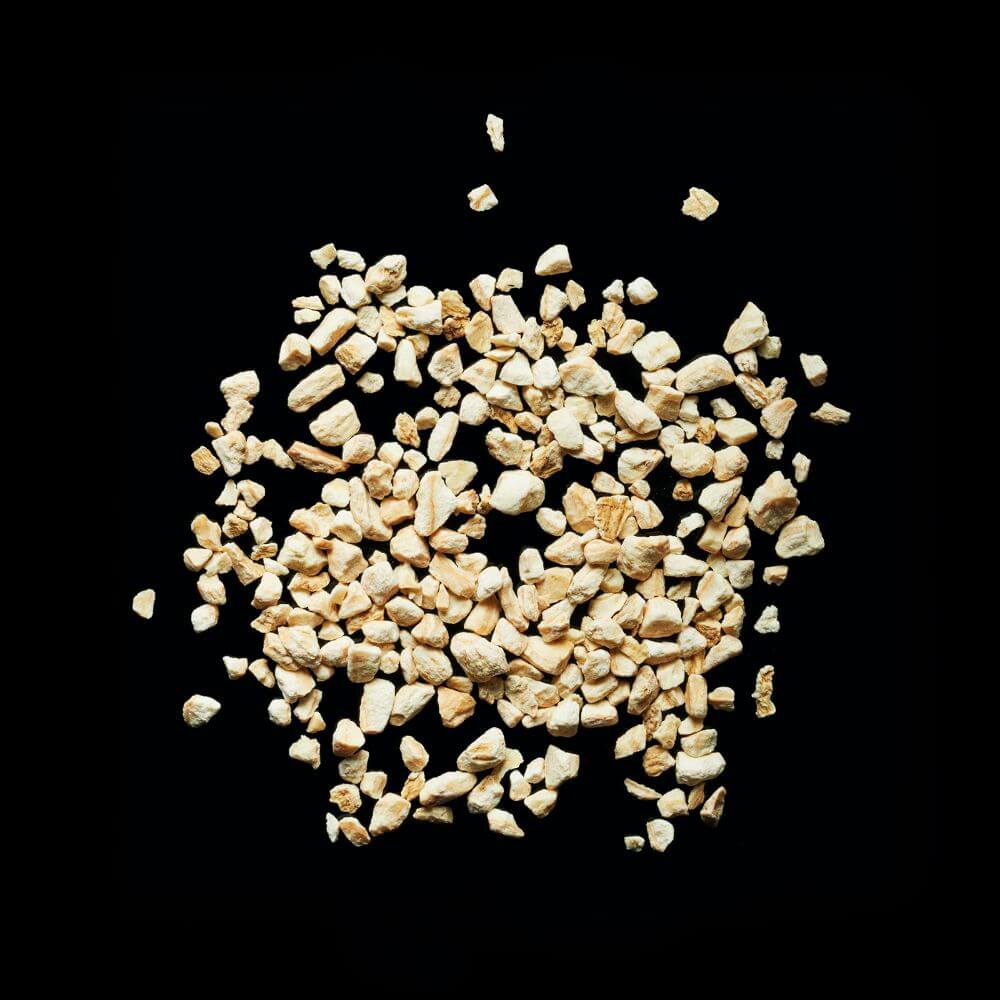
Ginseng
Once hailed as the fountain of youth, and used for centuries in traditional Chinese medicine, ginseng is anadaptogen that is revered for its vitality-enhancing and anti-aging properties. Research suggests it supports brain health and the immune system and offers antioxidant benefits. Ginseng is known to boost energy, manage stress, and promote overall well-being, helping the body restore balance and resilience. As one of the most powerful adaptogens, ginseng helps the body’s response to biological, chemical, environmental, nutritional, physical, and psychological stressors.
Rasāsvāda’s Rose Bergamot features both American and Asian Ginseng.
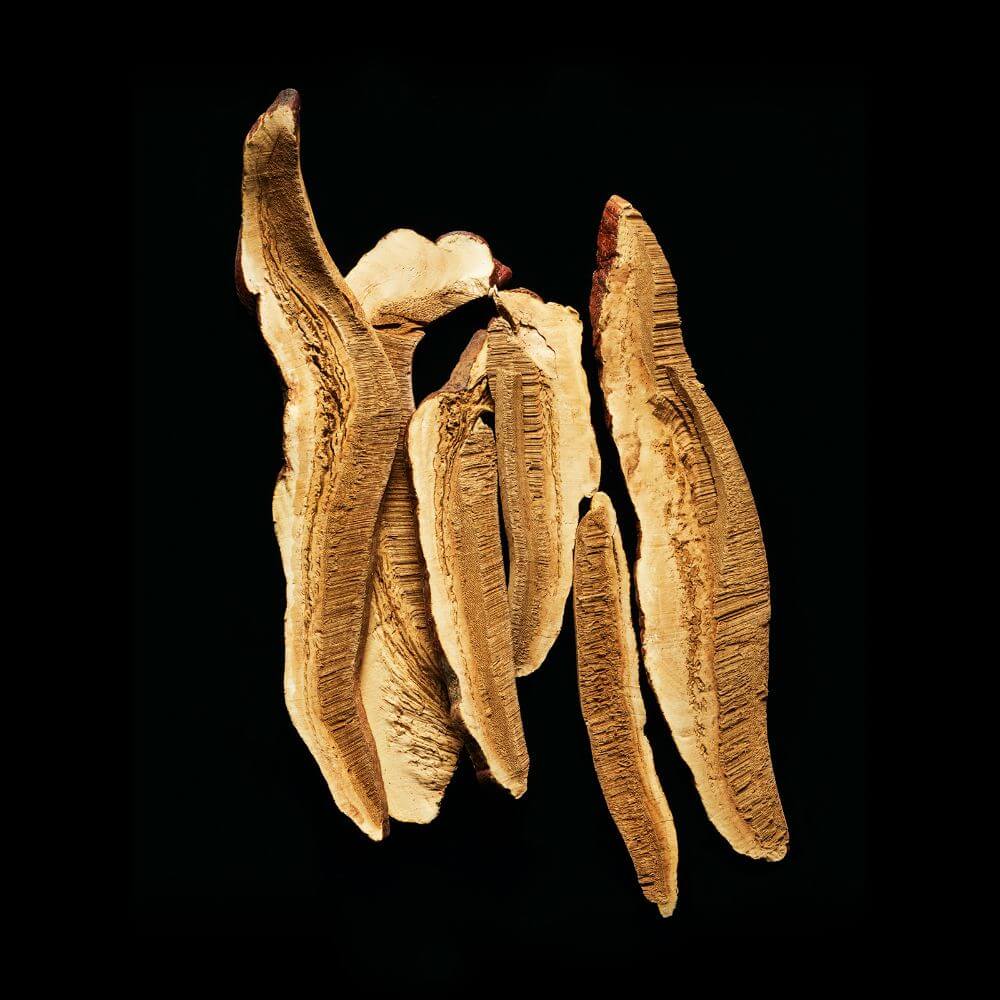
Reishi Mushroom
Reishi, known as the “mushroom of immortality,” has been used in Traditional Chinese Medicine for over 2,000 years to support immune health, stress management, heart health, and mood balance. Revered for its adaptogenic properties, research suggests reishi helps calm the spirit, reduce inflammation, and promote overall vitality.
Found in Rasāsvāda’s Black Ginger.
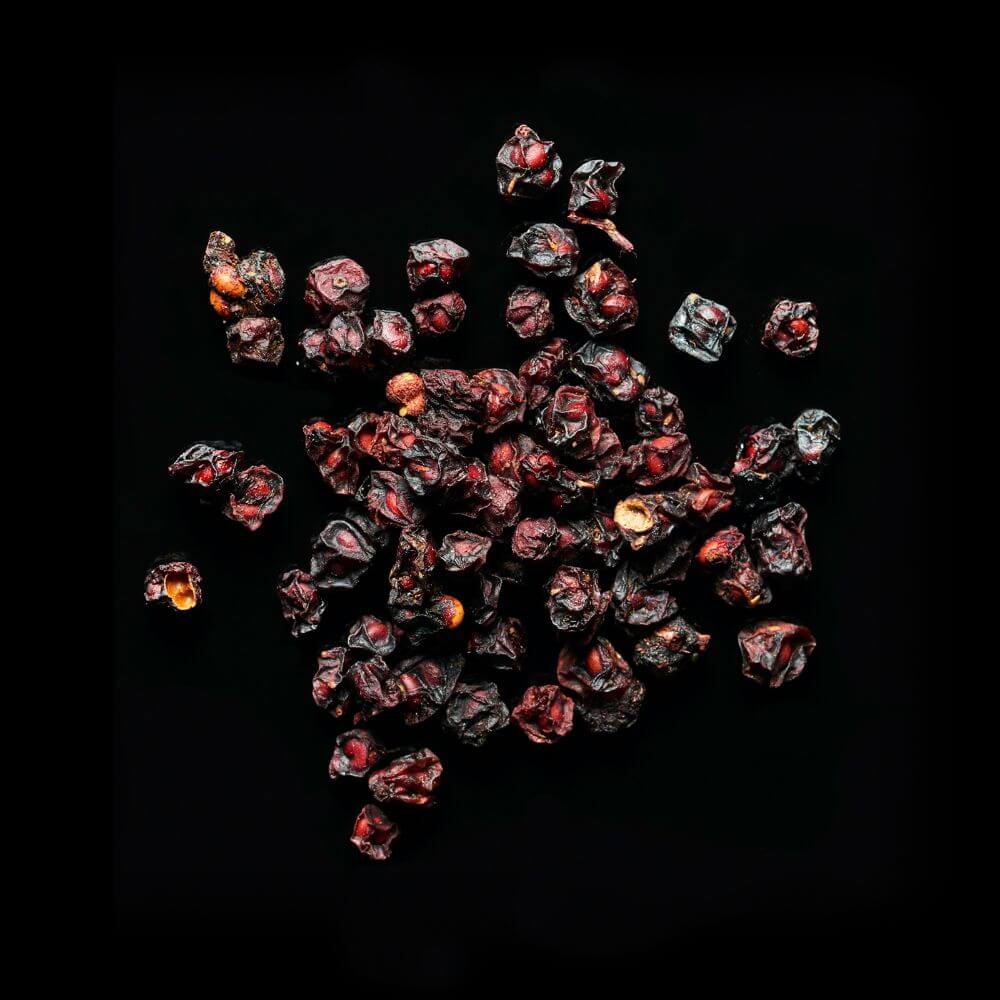
Schisandra Berry
Known as the “five flavor berry” and darling of Traditional Chinese Medicine, Schisandra has been used for generations to boost energy, combat fatigue, and promote longevity. As a powerful adaptogen, research suggests that it reduces stress hormones, supports brain health, and enhances endurance. Rich in antioxidants and anti-inflammatory properties, its role has been explored to aid liver detoxification and anti-aging and vitality-promoting effects. It grows upon vines, in tiny, bright red to purple clusters.
Found in Rasāsvāda's Rose Bergamot.
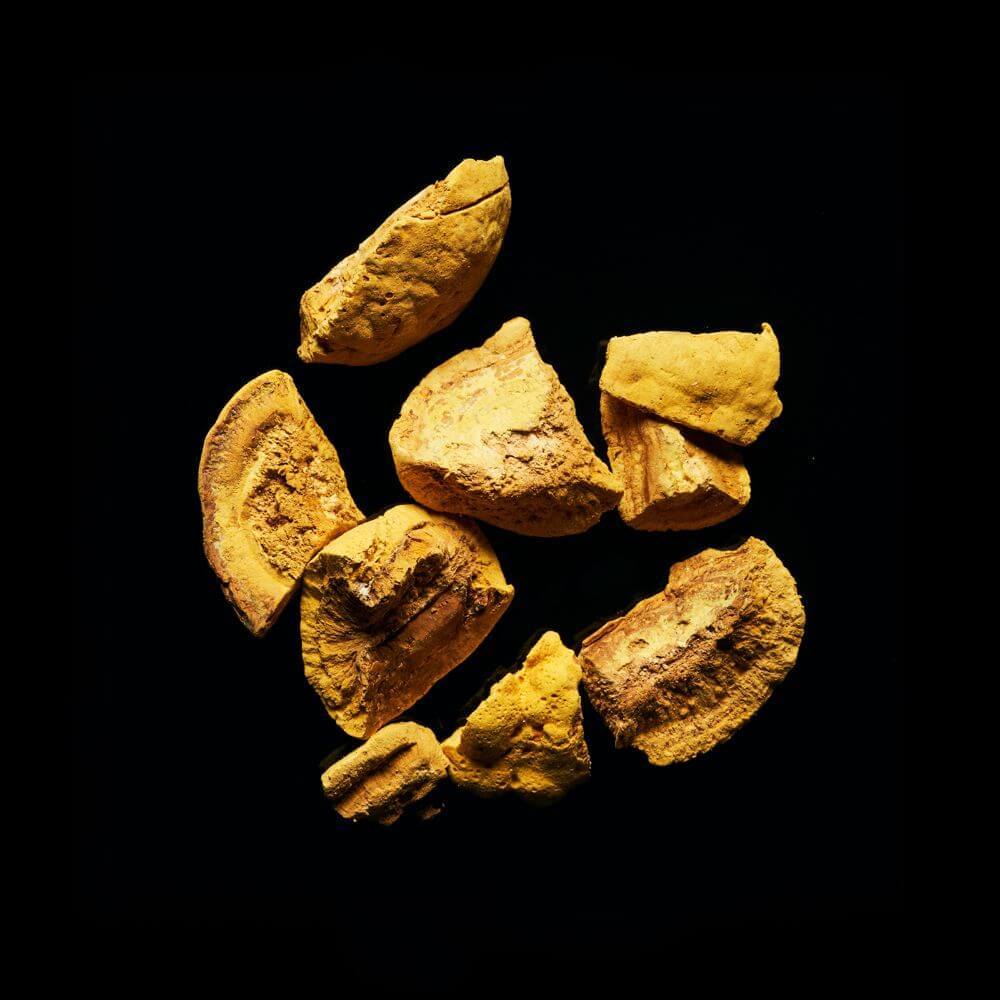
Meshima Mushroom
Commonly found growing on mulberry trees in China, Japan, and Korea, Meshima mushroom has been valued in Chinese and Korean herbalism for centuries. Known as “Women’s Island” for its supportive benefits, this powerful adaptogen has been traditionally used to promote overall well-being.
Rich in anti-inflammatory and antioxidant properties, research suggests Meshima may support immune function, support cellular health, and promote overall balance. Often enjoyed as a tea—especially in Korea—it has long been used to fortify the body and ward off common ailments, making it a staple in natural wellness practices.
Found in Rasāsvāda’s Black Ginger.
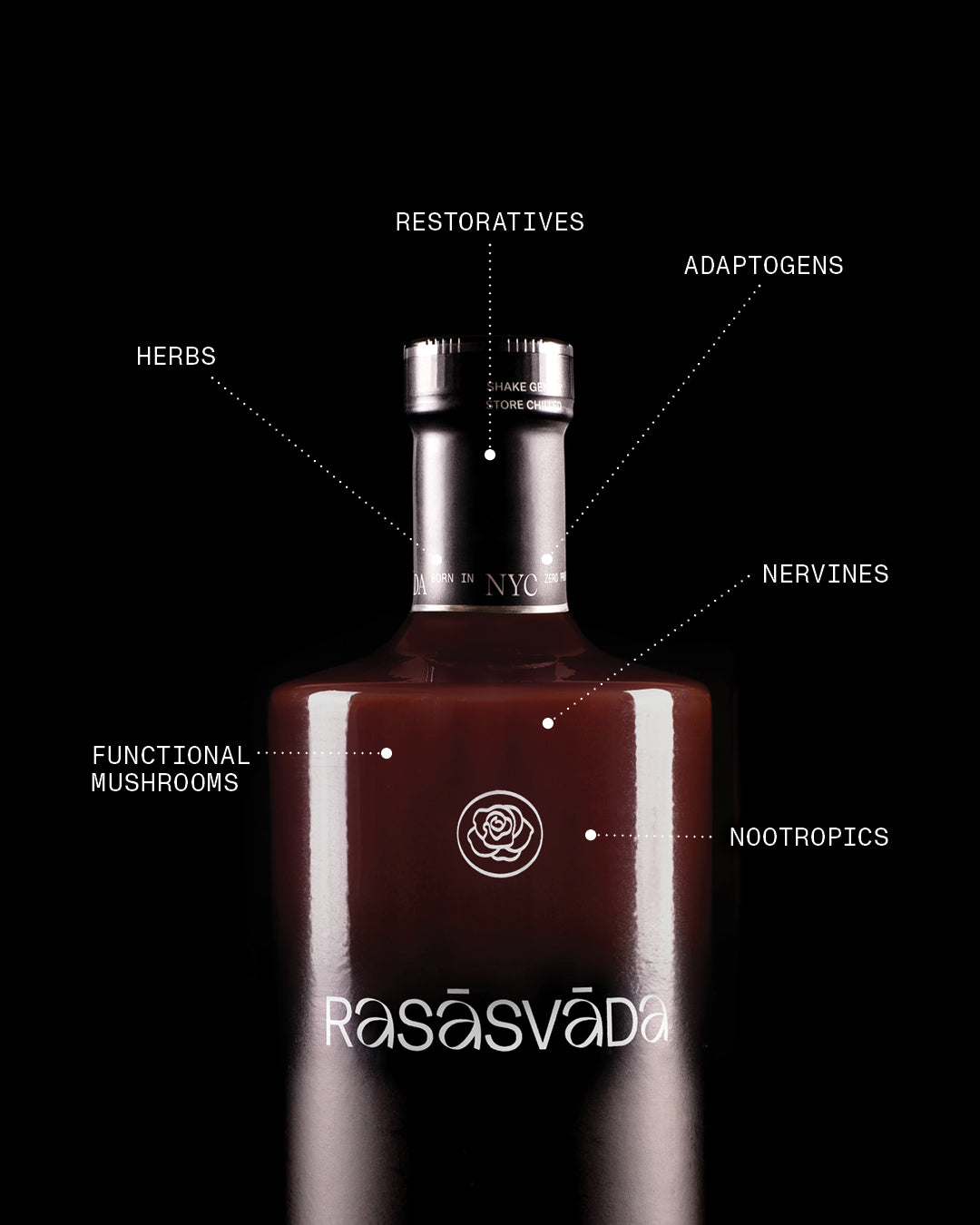
Zero-proof Rasāsvāda combines cutting-edge longevity science with expertly sourced herbs, adaptogens, and functional mushrooms. Discover the transformative power of adaptogens and experience a new way to drink—one that nourishes both body and mind.

